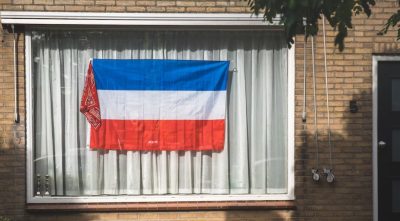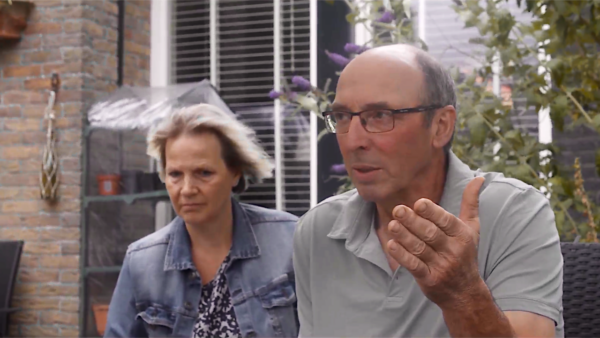EU Backs Controversial Dutch Plans to Shut Down Farms in Bid to Reduce Nitrogen Emissions

All Global Research articles can be read in 51 languages by activating the Translate Website button below the author’s name.
To receive Global Research’s Daily Newsletter (selected articles), click here.
Click the share button above to email/forward this article to your friends and colleagues. Follow us on Instagram and Twitter and subscribe to our Telegram Channel. Feel free to repost and share widely Global Research articles.
***
The European Commission on May 2 approved a plan by the Dutch government that would compensate livestock farmers in certain areas if they agree to voluntarily close their farms as part of the Netherlands’ efforts to reduce nitrogen pollution.
Under the new “schemes,” dubbed LBV and LBV plus, farmers will need to agree to shut down their production capacity definitively and irreversibly and not start the same breeding activity elsewhere in the Netherlands—the second-largest agricultural exporter in the world—or anywhere else within the European Union.
The “schemes” will run until February 2028 and are open to small and medium-sized livestock farmers in “overburdened Natura 2000 areas” in the Netherlands, providing their current nitrogen deposition load exceeds certain minimum levels each year.
In addition, only farmers that can prove they have been constantly producing over the five years before voluntarily closing down production will be eligible for the schemes.
The two Dutch schemes have a total budget of roughly €1.47 billion ($1.62 billion) and are part of the government’s plans to reduce nitrogen deposition in nature conservation areas.
Under the €500 million ($551 million) LBV scheme, farmers will be compensated “up to 100 percent” of the losses they incur by closing down their dairy cattle, pig, and poultry breeding sites, in the form of direct grants, according to a statement from the European Commission.
Compensation, ‘Green Bonus’
That compensation will cover the loss of production capacity and production rights, according to the statement; funding, however, depends on the area in which the farm is located.
Under the €975 million ($1.77 billion) LBV-plus scheme, which will be open to “peak-load emitting breeding sites who emit a high level of nitrogen per year, fixed as a minimum level,” including farmers breeding dairy cattle, pigs, poultry, and veal calves, “up to 100 percent” of losses incurred by the farmers will be compensated via direct grants.
However, some farmers may also receive up to 120 percent in compensation due to the loss of production capacity under that scheme, according to officials.
The European Commission noted in its statement that if closures are done owing to environmental reasons, member states may grant the farmers an additional 20 percent “green bonus” on top of the compensation for the loss of the value of the assets.
Dutch agricultural exports were worth €122.3 billion last year, according to the national statistics office.
‘Necessary and Appropriate’
According to the European Commission, shutting down certain facilities producing high levels of nitrogen pollution is “necessary and appropriate” to “improve the environmental conditions of the targeted areas and to allow a high-quality, sustainable, and environmentally friendly production” as well as help meet the policy objectives such as those in the European Green Deal.
The commission also found that the compensation to farmers is “proportionate” because it is “limited to the minimum necessary” and that the compensation “brings about positive effects that outweigh any potential distortion of competition and trade in the European Union.”
“The €1.47 billion Dutch schemes we approved today will facilitate the voluntary closure of livestock farming sites with substantive nitrogen deposition on nature conservation areas,” Margrethe Vestager, executive vice-president in charge of competition policy at the European Commission, said in a statement.
“The schemes will improve the environment conditions in those areas and will promote a more sustainable and environmentally friendly production in the livestock sector, without unduly distorting competition,” Vestager added.
Tuesday’s news release did not state what will happen to farmers who do not agree to voluntarily give up their lands.
Image: Dutch dairy farmer Martin Neppelenbroek at his farm in Lemelerveld, The Netherlands, on July 7, 2022. (The Epoch Times)

Farmers Under Pressure
Protests erupted across the Netherlands last year when the government initially announced the plan to slash nitrogen emissions across the country, including from farms, by more than 50 percent by 2030, and Prime Minister Mark Rutte’s administration made it clear that “there is not a future for all” Dutch farmers under the government’s objectives.
One dairy farmer in the Netherlands interviewed by The Epoch Times last year explained that he would have to cut his livestock numbers by 95 percent in order to meet the government’s new environmental regulations.
Another stated that the government had forced him to get rid of 12 cows as part of its efforts to reduce phosphate, and expressed his concerns that he would have to close down his farm if he was forced to get rid of more.
According to Dutch political commentator Eva Vlaardingerbroek, the plan could see around 3,000 Dutch farmers bought out by the government.
“This is how they do it: they put a knife to the farmers’ throats. They make sure they don’t get their licenses renewed, they’re plaguing them with new rules and restrictions every day and then offer them a bride [sic], knowing many will take it out of pure desperation. It’s all so vile,” Vlaardingerbroek wrote on Twitter on Tuesday.
Vlaardingerbroek also questioned the legality of prohibiting the farmers who agree to give up their lands from starting over again in other EU nations.
“The whole idea of the EU was supposed to be about freedom of movement and freedom of workers. This is some next-level USSR stuff,” Vlaardingerbroek added.
*
Note to readers: Please click the share button above. Follow us on Instagram and Twitter and subscribe to our Telegram Channel. Feel free to repost and share widely Global Research articles.
Featured image: Dutch flag displayed in the window of a farm dwelling. Photo credit: Ewien van Bergeijk – Kwant

